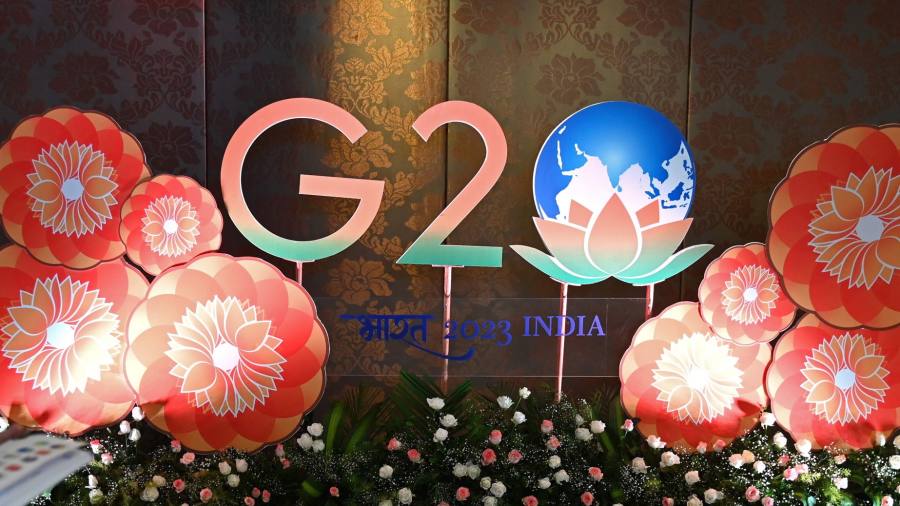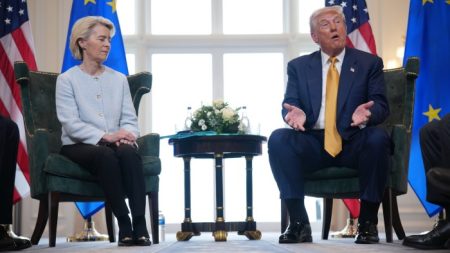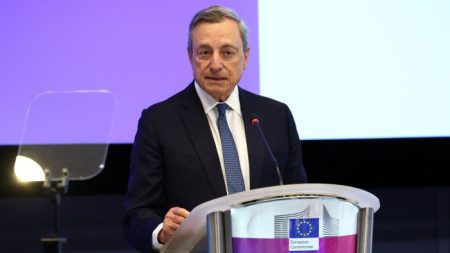Receive free Climate change updates
We’ll send you a myFT Daily Digest email rounding up the latest Climate change news every morning.
China has obstructed G20 climate negotiations, refusing to debate crucial issues such as methane emissions and reduced use of oil, gas and coal, according to several people familiar with the talks.
The people said Beijing’s stance was backed up by Saudi Arabia, putting in jeopardy hopes to conclude an agreement on ending fossil fuel use and boosting renewable energy.
“I’ve never seen such wrecking tactics employed at a multilateral meeting before,” said one person at the negotiations in Chennai in India, the current holder of the G20 presidency.
Another person familiar with the talks described the Chinese negotiator as a “one-man wrecking ball”.
China’s foreign ministry did not immediately respond to questions.
The negotiations in Chennai, which began on Wednesday and are due to end on Friday, are intended to help pave the way for the UN COP28 climate summit in the UAE later this year.
But to date they have highlighted the difficulties in reaching an accord.
A participant in the discussions described China’s stance — backed by Saudi Arabia — as “stunning” and “increasingly obstructive”. They added that if the countries impeding the talks “aren’t willing to shift, then the world has a real problem”.
Climate diplomats say Beijing’s co-operation at UN COP28 will be critical to reaching agreement over issues such as a global emissions stocktake and a fund for loss and damage resulting from climate change.
China remains the world’s biggest emitter of greenhouse gas emissions although it is developing renewable energy rapidly and its emissions are lower than the EU and US on a per-capita basis.
China and the US, the world’s two biggest polluters, are also resuming bilateral negotiations after a year of broader tensions. The countries’ respective climate envoys John Kerry and Xie Zhenhua met in Beijing last week and spoke again online on Thursday.
One climate expert familiar with China’s climate policy team suggested Beijing might be prioritising discussions with the US over the G20.
But UN climate chief Simon Stiell and COP28 president-designate Sultan al-Jaber have called G20 ministers to leave Chennai “with a clear signal that the political will to tackle the climate crisis is there”.
The problems at Chennai follow a failure to reach agreement at a G20 energy ministers’ meeting last week, at which Russia also resisted agreements related to climate change.
Geopolitical tensions over Russia’s war in Ukraine have played a large part in the G20 ministerial discussions.
People involved in the latest G20 meetings said discussions with China had been difficult during previous international climate talks, including at the UN meeting in Bonn in June, but that its stance at the Chennai negotiations had hardened.
However, Steven Guilbeault, Canada’s environment and climate change minister, said progress had been made on issues such as biodiversity and water.
China has committed to reach peak carbon emissions by 2030 and to be “carbon-neutral” by 2060.
But President Xi Jinping has said that the “method, pace and intensity to achieve this goal should and must be determined by ourselves, and will never be influenced by others”.
Additional reporting by Benjamin Parkin in Delhi
Read the full article here















